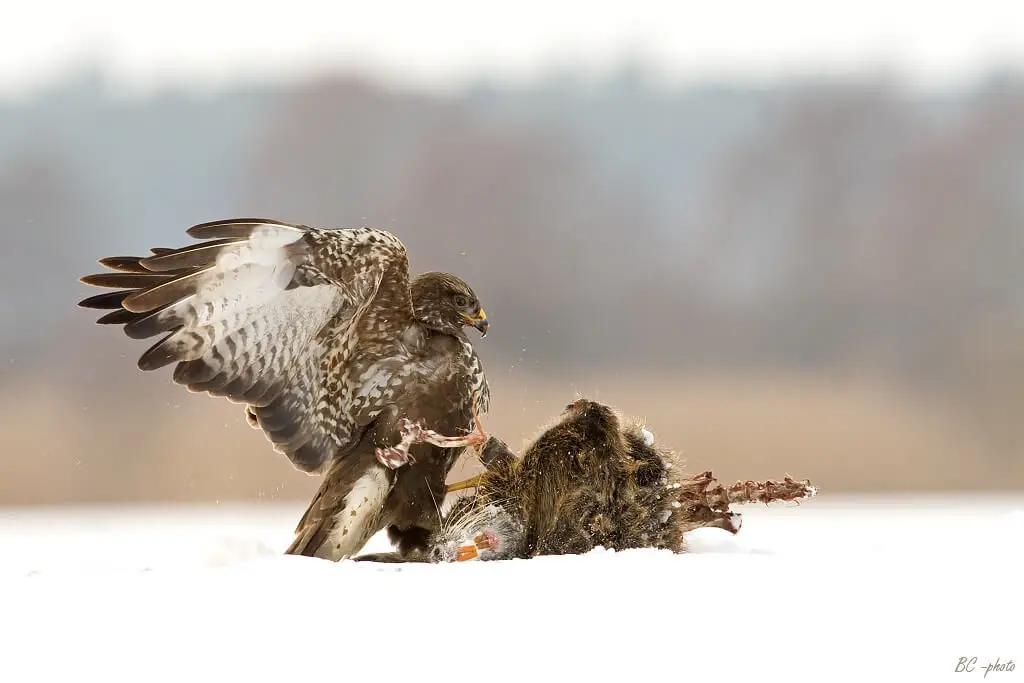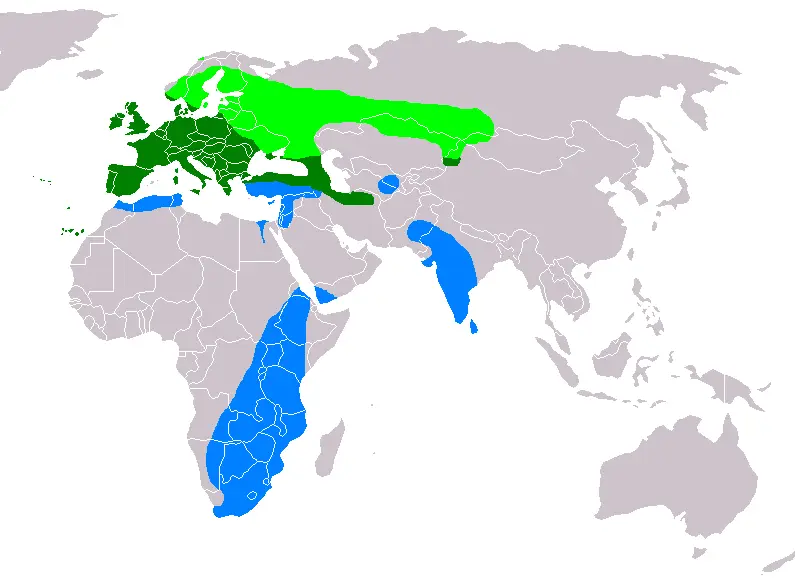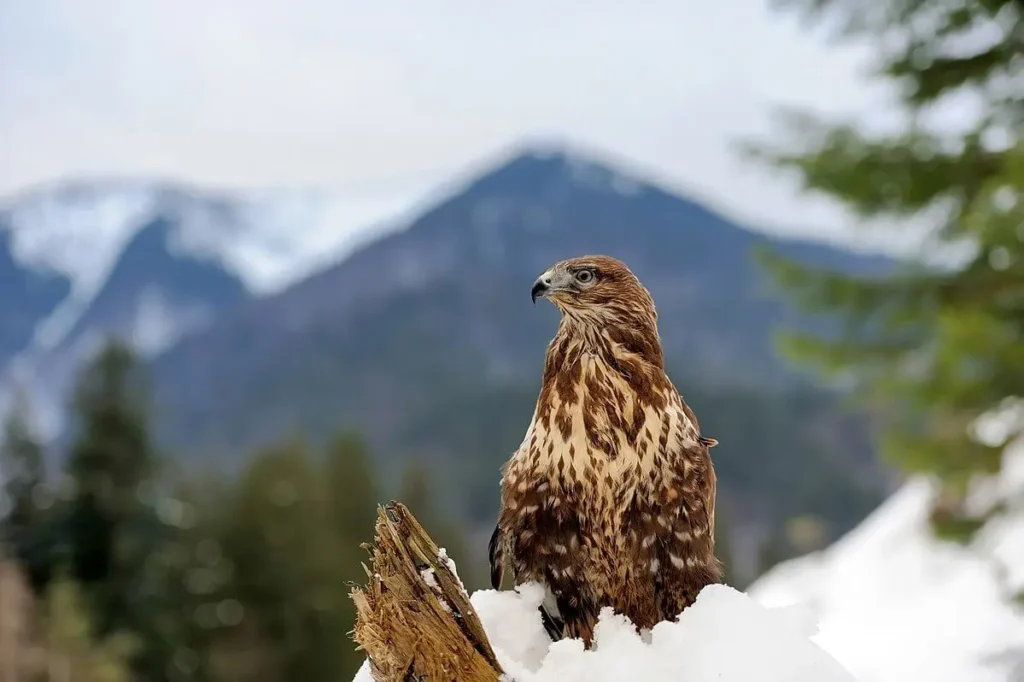Common buzzard (Buteo buteo) is one of the most common birds of prey in Europe. It is recognized by its broad wings, slow soaring in the sky, and loud call, reminiscent of a cat's meow.

General classification 📘
• The Kingdom: Animals (Animalia)
• Type: Chordal (Chordata)
• Class: Birds (Aves)
• Row: Falcons (Accipitriformes)
• Family: Hawk's eyes (Accipitridae)
• Gender: Buzzard (Buteo)
• View: Buteo buteo
Appearance 🦅
• Body length: 51-57 cm
• Wingspan: 110-130 cm
• Weight: 600-1400 g (females are larger than males)
• Color scheme: varies from light brown to almost black, often with a light lump
• Oko: yellow-brown, with a penetrating look
• Beak: hook-shaped, strong
• Wings: wide, rounded

Habitat and range 🌍
• Distribution: almost all of Europe, part of Asia, North Africa
• Nesting sites: forests, forest belts, beams, near open fields
• Migration: Partially migratory - northern populations migrate south in winter
Behavior and lifestyle 🌤️
• Type of activity: daily report
• Flight: slow, smooth hovering flight, sometimes at high altitude
• Territoriality: Protects its territory, especially during the nesting season
• Sounds: a loud "peeee" or "quiaa" - often heard high in the sky
Food 🍽️
• Type: predator
• Main meal:
- Rodents (voles, mice)
- frogs, lizards, snakes
- small birds
- insects, earthworms
• Hunting tactics: Usually watches from a height or sits in a tree, waiting for prey
Reproduction 🪺
• Mating season: March-May
• Nest: large, built on trees (sometimes on rocks), often used for many years
• Masonry: 2-4 eggs
• Incubation: about 33-35 days
• Chicks: hatch covered with down, in the nest - up to 50 days
• Parents: Both are involved in feeding

Life expectancy ⏳
• In the wild: up to 20 years old
• In captivity: sometimes more than 25 years
Preservation status 🛡️
• IUCN: the lowest risk (Least Concern)
• Threats:
- pesticide poisoning
- illegal hunting
- collisions with vehicles
• Protection: protected by the laws of many countries, in particular the European Birds Directive

Interesting facts 🤓
- ✅ The color is very variable - from almost white to chocolate brown
- ✅ Often hovers over highways - there are many dead animals there
- ✅ Its cry is often used in movies instead of the sound of eagles
- ✅ In some regions, it is called "mouser" because of its favorite prey
Conclusion ✅
Common buzzard - is not just a bird of prey, but a faithful guardian of forests and fields. Its presence is a sign of a healthy ecosystem, where the calm soaring of a bird of prey reigns in the air. It shows that beauty can be harsh and power can be silent 🦅🌾